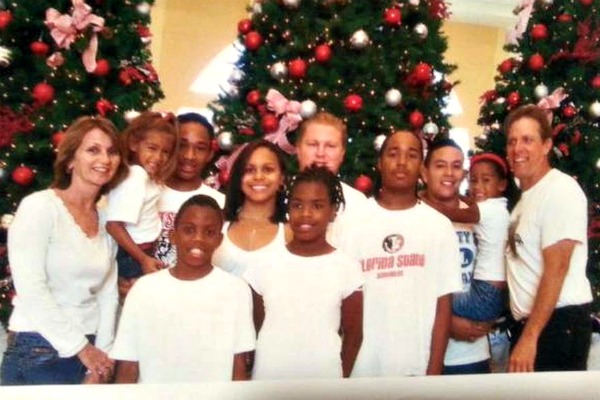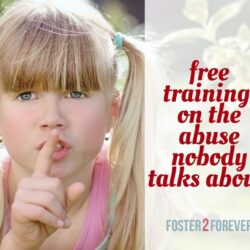Albert Wilson, Jr. is a wide receiver for the Kansas City Chiefs who grew up in Florida’s foster care system. Albert was placed in the Florida foster system twice – the second time he was in the system for 6 years until he aged out at 18. He had moved from group homes to other foster homes until he finally found security at the age of 16 in the foster home of Brian and Rose Bailey.
Albert Wilson’s account about his time in foster care demonstrates the far-reaching role foster families can play in a young person’s life.4 truths that foster parents can learn from Albert Wilson.
1. Your family life may be the only stable home life your foster children have experienced.
Albert learned for the first time in his life what it meant to be together as a family when he moved in with the Baileys.
“Their house was a place I felt safe — even happy. They showed me a side of family I hadn’t seen before, one where everyone was living at the same pace — and in the same place.”
2. Encourage contact with biological family, when possible.
Albert says he was lucky to have been able to still have his parents in his life even though they were in jail. In the Foster2Forever private Facebook group, sometimes foster parents are afraid of their foster children seeing their parents in jail. But looking from Albert’s point of view he sees that contact as positive.
“They [my parents] helped raise me — I talked with them regularly on the phone or through the mail.”
Seeing his parents in jail also taught Albert an important life lesson about the consequences of crime:
“People make mistakes — and there are consequences for those mistakes.”
3. Give your foster children an outlet to work out emotions.
Your foster child needs an outlet for anxiety and stress. It may not be in athletics or organized sports, such as football, but even exploring artistic, creative or even spiritual endeavors can give your foster child a boost of self-esteem and something to get their mind off of their problems. As Albert relates:
“when things got tough — no matter where I happened to be living — I could always turn to football…Football became my refuge. When I was on the field, everything else melted away. I poured everything I had into the sport. That dedication paid off on the field…”
4. A foster child might consider you family even after they leave.
Albert admits that living with the Baileys wasn’t always picture-perfect as he dealt with the emotions of missing his biological family, but considers the Baileys family even today.
“They were my family…I still consider them family today…”
Your role as a foster parent is an important one because you have the capacity to help a child live life to their full potential, no matter their background. Albert Wilson’s success can be partly attributed to the support he received from the foster families in his life.
“Without the Baileys and my cousin, I don’t know what would have happened.“
You can read more about Albert Wilson’s life as a foster kid, his foster family, and how he’s helping other foster kids.





